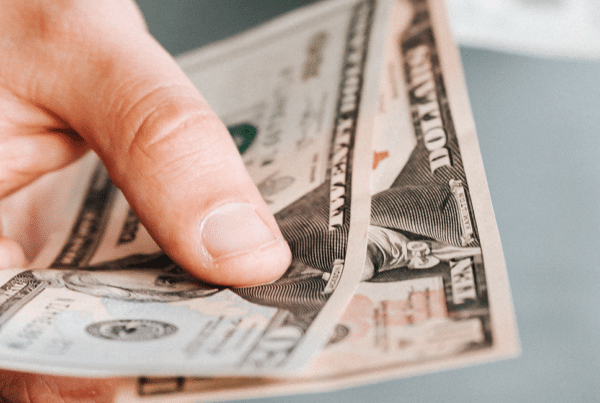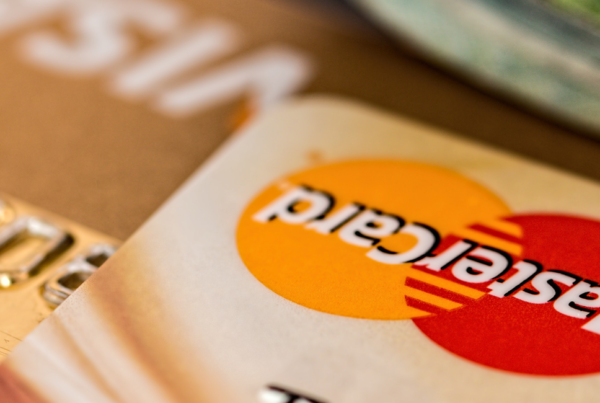
Manage your money, before your money manages you.
For many, the thought of mastering money management invokes fears of math, organization, and responsibility. When we’re children, there’s no concern about how to manage our money. But as our lives grow, so do our responsibilities. With each new year comes new costs and new struggles. As we enter adulthood, money management becomes an essential part of building our foundation.
To put it simply, life is easier when you have good money management skills. Consumers who focus on building this skillset often enjoy higher credit scores, better incomes, and less debt. These factors allow them to traverse the landscape of personal finance with ease.
Manage your money by building a foundation.
Building a solid foundation for your finances is a must. Without this, we tend to “make it up as we go” – and this can be detrimental when dealing with high interest debt. Once you build this foundation, you can enjoy perks like an emergency fund, easy credit approvals, no deposits on utilities, etc. While these things won’t solve all money woes, they certainly help ease the stress.
Today we’ll look at 10 ways to better manage your money. Some are easy, some a bit more difficult, but all will help you in your debt free journey.
Think before you spend.
So you’re facing a large purchase. Depending on your income, you may make this purchase without thinking twice. If your income is low, you may do a quick check of your account before deciding to pull the trigger. Of course, you could also just throw it on your credit card.
In order to truly “know” if you can afford something, you have to have a budget. While having a budget serves many purposes, it especially helps you see the big picture to your finances. A decision to make a large, or even small purchase is no longer arbitrary. Whether or not you can afford that item should be pretty clear once you have a working budget in place.
Have a budget. If you don’t, start one now.
Budgeting is boring. There, we said it. A big part of this perception is that budgeting will limit your ability to buy things. While true, it’s not a bad thing. Budgeting puts things into perspective for most people, many of which have never seen their financial lives on paper. Think of budgeting as a positive experience. One which you can see your spending at a granular level, and make improvements as needed.
For instance, I completed a personal budget about 4 years ago. Once I had all my expenses listed out and accounted for, I realized something. I was paying for multiple online subscriptions I didn’t need. Some I never watched, others had been bundled with another product or service, some I simply forgot I signed up for.
These subscriptions of $5 to $20 a month can really add up if you don’t keep track. Upon completion of my budget, I immediately freed up $134 a month by cancelling things I wasn’t even aware I was paying for.
Use your new budget to manage your money.
Your shiny new budget means nothing unless you put it to use. Use it to track your spending, income, and everything in between. Ultimately, your budget will become an important tool while you manage your money. I find the best first step is to list all of your expenses, every single one of them. It’s important to dig deep; pull your bank statement if needed to see every bit of money going out, and where it’s going.
This will be the first step, and arguably the most important. It may shock you to see how much you’re really spending on a monthly basis. Small charges, quick lunches and a few dollars here or there add up quickly. Don’t forget your internet subscriptions; Netflix, Hulu, Amazon Prime, etc. These can be overlooked but are a fixed monthly expense that should be on your budget.
Once you know your monthly expenses, without surprises, you’re ready to use your budget to manage spending. I personally built my budget using three categories; fixed monthly expenses, variable monthly expenses, and emergency savings. I consider emergency saving a budgeted category. While this topic is for another article, having an emergency fund is possibly the most important piece of any money management strategy.
Give yourself a limit for un-budgeted spending.
You may not have to “give” yourself a spending limit, your budget may dictate it for you. Once you’ve outlined your income and expenses, you may find yourself with money left over… if you’re lucky.
A word of advice: If you haven’t created an expense column for savings or an emergency fund, I highly suggest you do so. It’s quite easy to complete your initial budget and think, “I have $300 left over every month to spend.” But before you do, make sure you’re contributing to your savings or emergency fund as a standard expense.
If you do have money left over each month, consider giving yourself an un-budgeted spending limit. This will keep your spending in check, and allow you to grow your budget without getting off track.
Track your spending.
It’s very important to keep track of what you spend. Nowadays there’s even apps that will do it for you. Our needs change over time, and along with them our budgets. When you track your spending you’ll have full transparency into where your money is going, and how to plug any leaks that might have occurred.
Frivolous spending will become abundantly obvious when you start tracking your day to day habits. Once you know what you’re spending money on, and why, you can find alternate solutions if possible.
Don’t commit to any new recurring monthly bills.
Recurring monthly bills are fixed expenses. Not to mention, they can be easy to forget about as we usually have them on auto-pay. This feature is great for remembering to pay your bills on time, but can also catch us by surprise if we forget about them.
At this stage, you’re getting your finances in order. Adding to your fixed monthly expenses is not likely the best option. In fact, you should ideally be looking for ways to reduce your recurring monthly bills.
Make sure you’re paying the best prices.
When you’re budgeting, it’s best to review what you pay for some goods and services. You don’t always have to go without if the price tag doesn’t fit your budget. Find if the service or product is available from other sellers, or at a lower rate elsewhere.
When I completed my budget, I removed my cable bundle totaling $250 per month. I replaced it with a Netflix subscription and upgraded to an unlimited cell phone plan. These two items cost me an extra $32 per month combined. Then, I dropped my cable package to basic internet only – $44 per month.
So now I’m paying a total of $76 per month for the same experience I was previously paying #250 for. There’s almost always money to be saved somewhere if you look hard enough.
When you manage your money, you can save up for big purchases.
We’ve never been good at waiting for things we want. Instant gratification is a key part of why we spend on things we know we shouldn’t. It’s not about whether you “can” afford something in the moment, it’s about how it might impact you later. Right now, I “can” afford to take a trip to Las Vegas, but I also know that it will destroy my budget.
Rather, try saving up for the thing you want. Create a new bucket so to speak in your budget, and begin setting aside money for that particular thing. Practice discipline in waiting until that savings covers the cost of the item. It’s tough, but now you can buy it without any concern that other bills will be late.
Limit your credit card purchases.
Having a credit card, and paying it off every month is a great tactic for maintaining your credit score. But, do your best to limit your purchases on plastic. It’s easy to forget what you spend on your cards is compounded by interest and fees. This is especially true if you’re only making the minimum payments.
Having a card and responsibly maintaining it is a good thing. But, do your best to limit your purchases, especially if you’re uncertain you can pay it in full when the bill comes.
Contribute to savings regularly.
We’ve already talked about this briefly, but it bears mentioning again. It’s a great idea to work your saving percentage into your budget. This way you know you’ll be saving “x” amount each month, planned or not.
When you have extra money, you can always choose to add it to your savings or emergency fund. Remember, you don’t have to spend extra money. Find a place for it in savings or an emergency fund. Not only will you thank yourself later, it may come in handy in a pinch. All of this advice is difficult to implement if you’re buried in debt. As always, consider eliminating your unsecured debt, money management will be infinitely easier without high interest debt.
Your partner in debt relief,
Consumer First Financial





